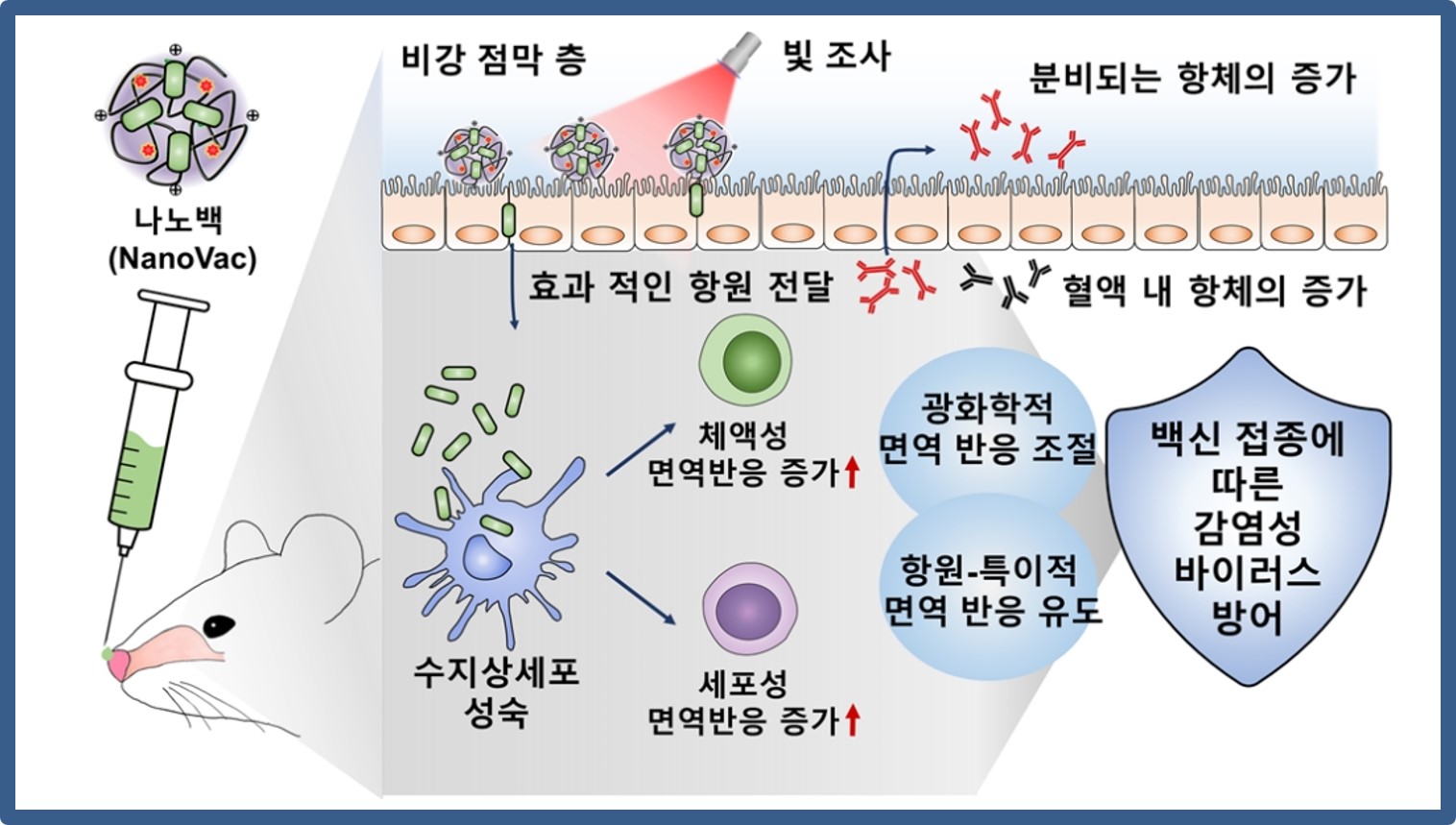-
Developed a Nano Vaccine that Controls the Level of Immune Response with Light after Intranasal VaccinationAuthor : 관리자Date : 2021.11.22Hit : 635
-

The team led by Professor Na Kun of the Department of Biomedical Chemical Engineering in CUK and Professor Lee Chung-sung of Sunmoon University succeeded in developing a nano vaccine that controls the level of immune response with light after intranasal vaccination. The nano vaccine developed this time is expected to be used to protect against influenza virus infections, and also for research on treatment for various diseases such as vaccines for the coronavirus and cancer.
So far, various ways of direct vaccination to the nasal cavity (nose), which is the main route of virus infection, have been tried to prevent the influenza virus that causes many casualties every year. However, the nasal vaccines in the past had issues in safety either because it was difficult to deliver antigens due to the mucosal layer in the nose that blocks foreign substances, or because live viruses had to be used.
Accordingly, Professor Na's research team developed a vaccine in the form of a nanocomposite, using a polymer with conjugated antigen protein and a photoresponder. The nano vaccine developed this time has enhanced tissue permeability by using light so that it can stay longer in the nasal cavity. On top of this, it is safer because the degree of immune response can be controlled by the time of exposing light according to the patients’ conditions.
The nano vaccine developed by Professor Na's research team was proven for its effectiveness in protecting against the influenza virus in animal testing. After administration of the nano vaccine, the animal models were exposed to light, and showed a 100% survival rate. The experiment showed that animals that were vaccinated and then exposed to light had up to eight times more immune cells than the animals that were administered only with the antigen protein, and the amount of antigen-specific antibodies increased by 80%.
This research was conducted with the support from the basic research project (middle-level research) by the Ministry of Science and ICT and the National Research Foundation of Korea, and the research findings have been published in the October 24 issue of the international journal Advanced Science (IF: 16.806), introduced as a research highlight.
* Go to the published article https://www.advancedsciencenews.com/shining-a-light-on-more-efficient-nasal-vaccines/
Professor Na Kun of CUK Bio Medical Chemical Engineering who is in charge of the research said, “The nano vaccine developed this time is a vaccine delivery platform technology that can be applied to various diseases, and we expect that it can be applied to various antigens such as various infectious agents showing pathogenicity like coronavirus and cancer cells. We are planning to carry out follow-up studies such as safety evaluation and efficacy evaluation studies for the actual commercialization of nano vaccines.” (End of Document)
-
Attachment File

